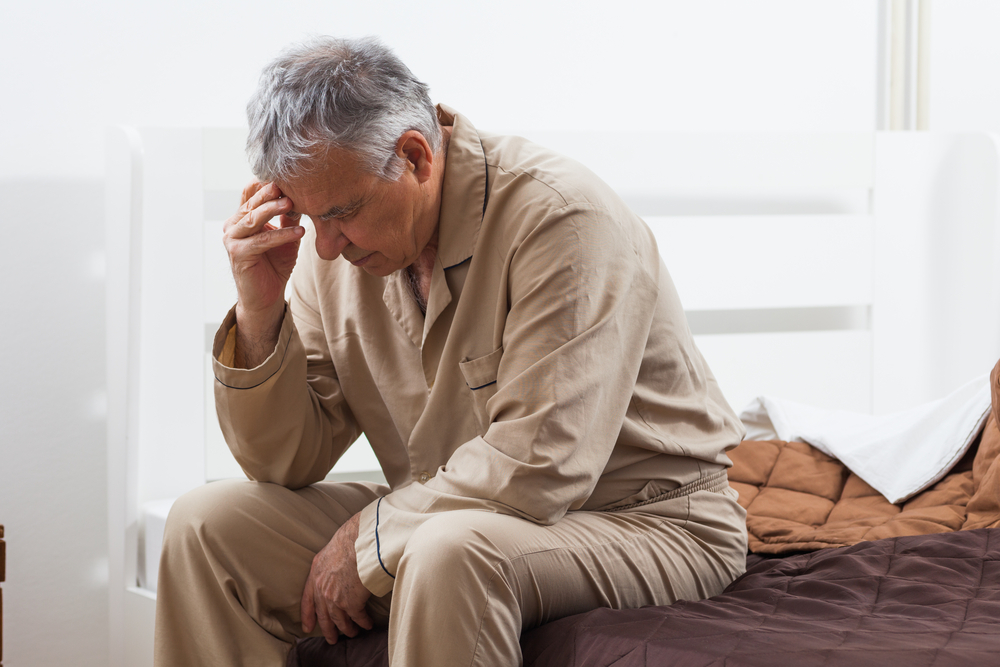 November 16, 2016
November 16, 2016
When you are caring for someone who has Alzheimer’s disease, you may notice changes in their personality during the late afternoon and evening. You are not alone in experiencing this shift. Doctors call this change in behavior and mood sundowning, or sundown syndrome. The change in sunlight seems to be the trigger. Sundowning symptoms can increase as the night goes on and usually get better by sunrise.
While doctors are not yet certain of the exact cause, common symptoms exhibited by Alzheimer’s patients with sundowning include:
- Agitation and irritability
- Restlessness, pacing, and increased wandering
- Increased confusion and disorientation
- Demanding behavior
- Increased suspicion of others
- Mood swings
- Auditory and visual hallucinations
Although you may not be able to stop sundowning symptoms completely, you can help your loved one manage this difficult time of day and sleep better at night. Here are five tips for family caregivers assisting a loved one with Alzheimer’s who has sundown syndrome:
Establish a Daily Routine
It’s a great idea to establish a daily routine for your loved one by setting regular times for getting up in the morning, eating meals, and going to bed. Having a structured routine can help lower anxiety, decrease stress, and make your loved one feel more comfortable. If possible, try to do more demanding activities in the morning. Schedule appointments, outings, and visitations earlier in the day when your loved one is more likely to be at their best.
Keep Daytime Naps Short
Older adults need just as much rest as younger adults and require seven to nine hours of sleep per night. To help your loved one keep their circadian rhythm in balance, discourage long afternoon naps. A person who rests during the day will be more likely to stay awake at night. Encourage your loved one to do activities in the afternoon rather than nap, like playing cards, board games, or putting together puzzles.
Make Time for Exercise
Sometimes, the best way to get a good night’s sleep is to be tired from a day full of beneficial activities. Older adults should be getting about 150 minutes of exercise or more a week if their health allows for it. Not only is exercise great for physical health and helps with mobility, but it can also slow down further cognitive loss in Alzheimer’s patients.
For beginners, it’s a good idea to start small. Even getting a moderate amount of exercise can help improve your loved one’s quality of life. Start making an exercising routine by taking walks, doing light aerobics, or going swimming. Being active can help alleviate feelings of depression, reduce stress, and opens up opportunities for socialization. Consult your doctor for exercise routines your loved one can perform if they have difficulty with balance or mobility.
Monitor Diet and Avoid Stimulants
As with exercise, you should discuss your loved one’s dietary concerns with a health care professional, but it’s best to limit their consumption of caffeine and sweets, especially after midday. Sugary foods and caffeine can cause spikes in blood sugar and can disrupt your loved one’s sleep cycle. Nicotine and alcohol should be avoided altogether. You should also monitor and limit fluid intake a few hours before bedtime if a full bladder causes nighttime incontinence.
Create a Comfortable Sleeping Environment
When it’s time to go to bed, having a nighttime routine can help prepare your loved one for sleep. You can play calming music, read to them, or solve puzzles together to unwind and prepare for a relaxing evening. It’s important to keep the environment peaceful and quiet. Those with sundown syndrome are sensitive to noise and outside stimuli, and noise can be incredibly distracting and upsetting.
It’s also important to adequately light your loved one’s room throughout the day and evening, as darkness and shadows can cause their surroundings to look unfamiliar. Not getting enough light can also affect their circadian rhythm. When it’s time to turn off the lights to sleep, provide nightlights or keep a light source on in the bathroom or hallway to help them understand their surroundings if they get up during the night.
If your loved one is experiencing sundowning symptoms or has been diagnosed with sundown syndrome, you’re not alone. It’s important to stay positive and remember to take care of yourself and get a restful night’s sleep. After all, you need to be healthy in order to be there for your loved one.
For those who are interested in respite care options, need assistance with daily activities, or just want a helping hand around the house, our certified caregivers can help you and your loved one rest a little easier. Contact us today to find out how we can give you and your loved one peace of mind.



